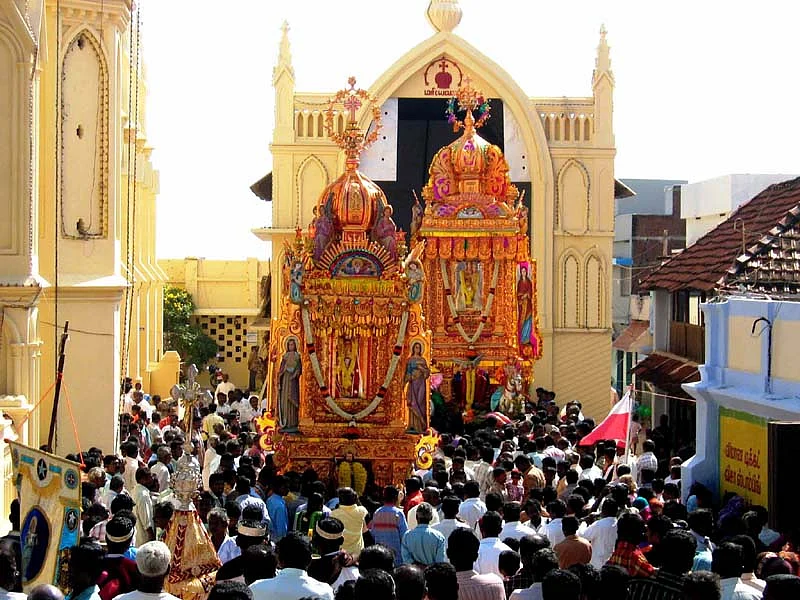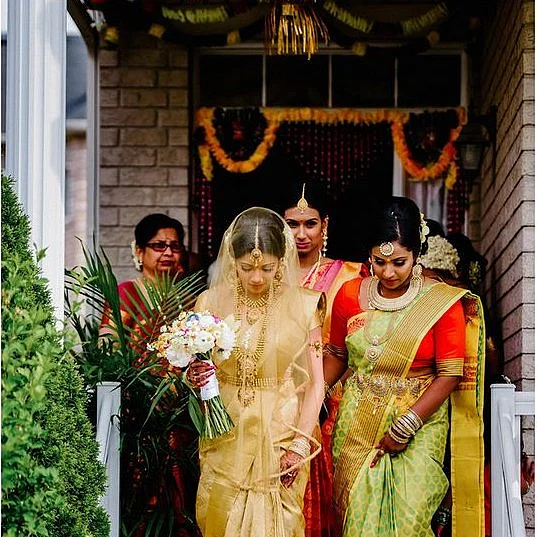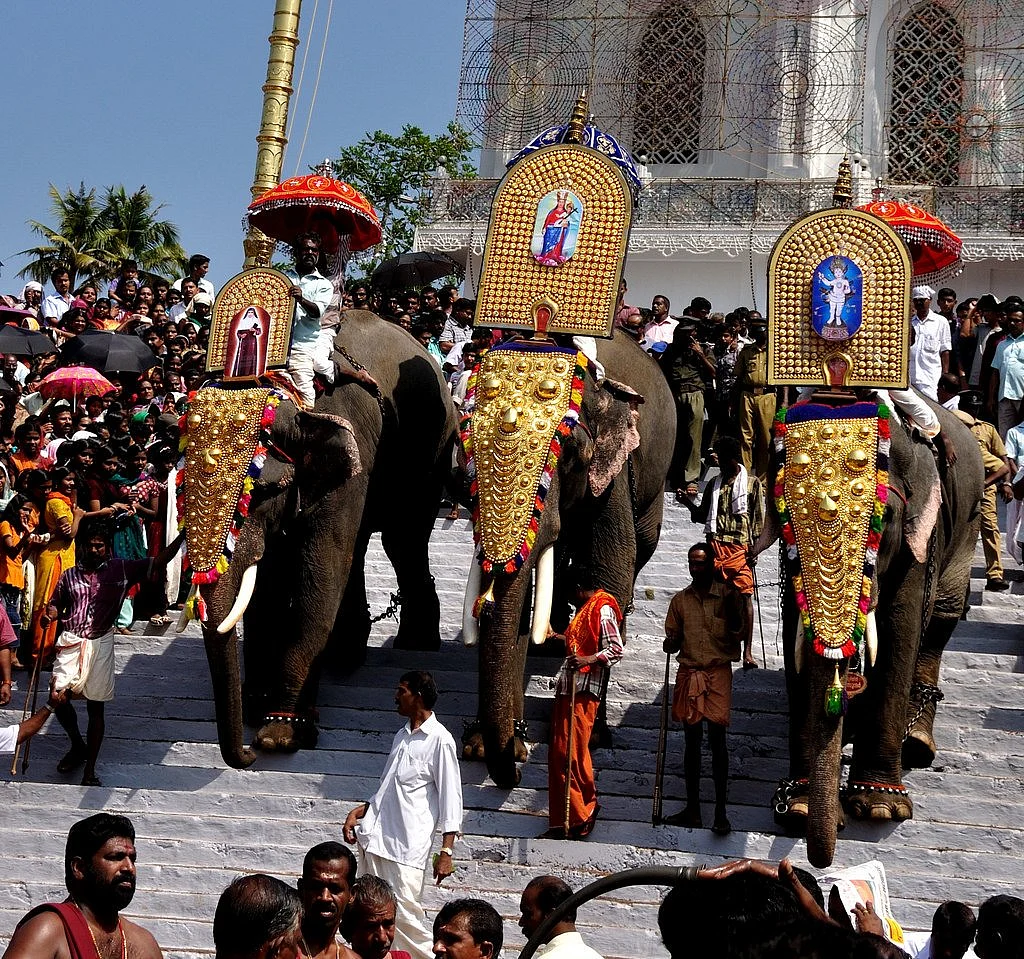Christianity in India: Colonial legacy, or...?
It has become fashionable for Sangh Parivar elements in India and overseas to cast Christianity in a negative light, often linking it to colonial oppression

Indian Christian Day, generally marked on 3 July back home, will be celebrated on 29 June in New York — by way of events that are expected to bring together Indian Christians from all over the north-eastern United States, regardless of creed, region, language or denomination, to honour the heritage and traditions of Christianity that India has hosted over two millennia.
It has become fashionable for Sangh Parivar elements here and in India to cast Christianity in a negative light, often linking it with colonial oppression. Indeed, they have made great efforts at home and abroad to portray Christianity in India as purely a product of European colonialism.
However, in doing so, they are not only denigrating a segment of the society that has contributed immensely to the socio-economic progress of India, but are also exhibiting a religious stigma and marginalising these India's Christian communities for their own political ends.
It is a fabricated lie that is oft-repeated, and Indian Christian Day was specifically established to challenge this growing narrative — this narrative that ignores India's ancient Christian heritage, especially the acolytes of St Thomas who are the Christians of Kerala, predating colonialism by over a millennia.
It is believed that St Thomas, one of Jesus Christ's 12 disciples, came to India himself to preach the Gospel. The active trade between the Roman Empire and much of West Asia on the one hand and South Indian communities on the other in the first century make it plausible that the Middle Eastern missionary did indeed reach the Subcontinent.
The roots of this strain of Christianity in India run deep, then, given St Thomas the Apostle's arrival on the Malabar coast in AD 52. This ancient tradition, enduring over centuries, is a testament to the indigenous spirit of Indian Christianity.
Historians also note that the Indian Church had strong ecclesiastical ties with the Persian and Syriac churches rather than with European ones.
These early Christians became known as 'Nasranis' and followed Eastern Syriac (Chaldean) liturgical traditions. The early Christians of the Subcontinent also maintained all cultural integration with local Indian customs.

When Vasco da Gama arrived in Calicut in 1498, there was already a thriving Christian community in Kerala with established churches with strong links to the Syrian Church. In fact, the history of local resistance to Latinisation by the Portuguese is another illustration of the indigenous character of the earlier Indian church.
In 1653, the Coonan Cross oath became a major instance of activism against Portuguese religious domination, prompting one to conclude that Indian Christianity was more anti-colonial than colonial. As author Clara A.B. Joseph puts it: 'The portrayal of Indian Christianity as a colonial enterprise is not only historically inaccurate but also diminishes the agency and legacy of Indian Christians who predated and often resisted colonial powers.'


Indian Christians have made significant contributions to India's social reform, education and healthcare as well. Despite constituting only about 2.3 per cent of India's population today, their contributions span centuries and are deeply embedded in India's modern institutional framework. They played a pioneering role in establishing modern education in India, including for marginalised groups.
It was Christians who established modern schools in many regions, especially in Kerala, Tamil Nadu and the Northeast.
Institutions such as Madras Christian College (1837), St Xavier's College (Mumbai, 1869), Loyola College (Chennai, then Madras, 1925), and St Stephen's College (Delhi, 1881) have all been elite centres of learning.
These Christian educational institutions and missions also focused on inclusivity, training girls, Dalit groups and members of the tribal communities of India long before the State took an active interest in them.
Christian missionaries also opened schools using various regional languages to reach the rural poor, preserving India’s linguistic heritage. William Carey and Alexander Duff promoted both English and vernacular education.
Regional scripts in Malayalam, Tamil, Khasi, and Mizo were originally created to facilitate the printing of books, including grammar books, dictionaries, newspapers and literature in regional languages, further facilitating the development of modern prose and literary forms in Indian languages such as Bengali, Tamil and Marathi. William Carey, who is known as a Bible translator and educational reformer, was also instrumental in developing the Devanagari script that made it possible to print the first book in Hindi — and it was a copy of the Bible.
Christian missions also established many of India's earliest and most respected healthcare institutions. The Christian Medical College in Vellore is world-renowned for medical training and treatment. St John's Medical College in Bangalore and hundreds of mission hospitals in remote and underserved areas are hallmarks of Christian commitment to serve, even in the most difficult and trying conditions.
Christian missions were early advocates of social justice as well, often challenging caste-based exclusion and promoting human dignity. It is their focused on providing education to and empowering Dalit castes, one of the most oppressed groups in India, that seems to draw the ire of a certain section of society. They also worked with Adivasi communities in northeast and central India, offering education, health and legal advocacy.
Promoting gender equality was another objective of the Christian missions, achieved through education and the employment of women across the Subcontinent. And the Syrian Christian community in Kerala led the way to efforts to attain 100 per cent literary — across the gender divide.
For Indian Christians, there is much to be thankful for as they celebrate this day in New York.
There will also be celebrations across other major cities in the US and around the world in the next few days.
However, as we celebrate this great legacy, we are mindful of the perilous situations Indian Christians are facing from the ultra-nationalists and Sangh Parivar organisations in India, as their freedom of conscience and freedom to worship as per the Constitution is severely challenged, especially in BJP-ruled states.
Manipur still remains a fresh wound in our hearts, as those who are entrusted with governance continue to ignore the death, misery and destruction that go unabated.
A prayer is in order for those who are the victims, as well as for those who are silent in the face of injustice.
George Abraham is global coordinator for the Indian Overseas Congress and vice-chairman of the IOC, USA. He was formerly chief technology officer, United Nations
Follow us on: Facebook, Twitter, Google News, Instagram
Join our official telegram channel (@nationalherald) and stay updated with the latest headlines
